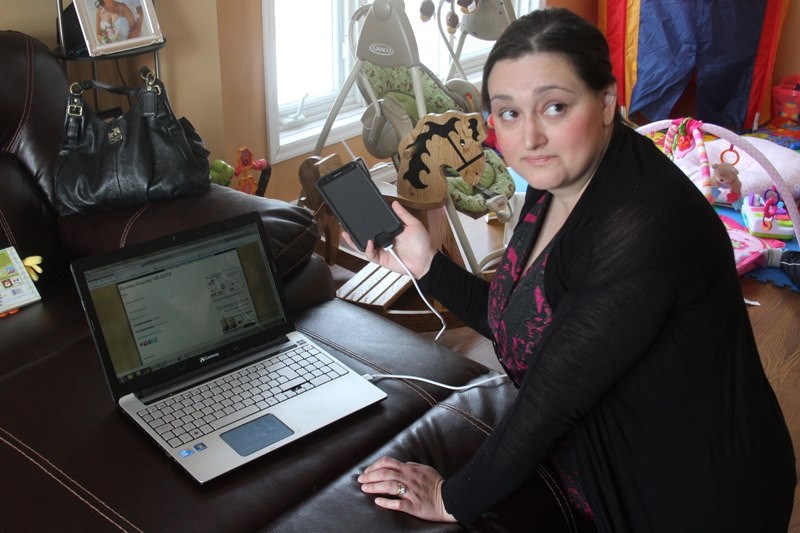Sabrina Ree's job depends on her having access to the Internet.
As a breastfeeding peer mentor for the University of Toronto, Ree uses the web for teleconferences and other communication between Toronto and her Murillo home.
But her home is located on a 1.5-kilometre stretch of Mud Lake Road that falls into an Internet dead zone.
"I have been living on Mud Lake Road for seven years. I have been asking for Internet from Tbaytel for seven years," said Ree, who started a petition with a neighbour to get the local Internet service provider to bring high-speed web service to the 12 affected homes.
All houses on the stretch from John Street Road south to the train tracks don't have access to high-speed Internet - except for two.
"It's very frustrating because we have been trying and trying and nobody seems to be able to give us the right answer," said Ree.
Ree uses Xplornet, a rural broadband provider, but the service is slow, so she often relies on the data network on her smartphone.
So does her neighbour Amy Godwell.
"Our bill is insane. This month it's $180," said Godwell who lives on that same stretch of Mud Lake Road with her husband and two children.
They would normally use a computer to keep in touch with out-of-town family and to pay their bills.
"I have two children that will be going to school and will be needing it when they go," Godwell said, adding she also tried satellite Internet, but it cost more than using their data network.
Of the two homes that do have high-speed service, Ree said one has had it for four years and the other neighbour, the newest on the road, has had it since December of last year.
Tbaytel's corporate brand communication manager Katie Crowe said she believes the two houses on the road that have service are using a signal booster and that equipment isn't supplied or supported by Tbaytel.
And the level of service they are receiving isn't what the company would like it to be.
"A lot of the issues and challenges with providing services to more low density or rural areas include geographic distances from points of connection for the service as well as financial," said Crowe.
It's not about how close a residence is to a telephone pole or exchange point, but where they fall in the loop length from a connection point.
"This service delivery from an exchange is not in a linear pattern," said Crowe.
"There are gaps in the loop links and the distances between loops in some of our service areas and that's what presents some of the challenge in providing the service."
But hope is not lost for areas like Mud Lake Road.
"We do understand that high-speed Internet is becoming something that's essential in our daily lives so that is why it's something that's always on our radar, to see where those gaps exist and to see what we can do to bring service to those areas that are under-serviced," said Crowe.
Bringing service to those areas requires planning and resources and Crowe said they are looking to partner with the federal government under its Broadband Canada program for support to service areas like Mud Lake Road.
In the meantime, Ree and her neighbours still won't have the Internet service they want.
"I am obviously not going to move," she said. "I'm just going to have to suck it up with what I have."
